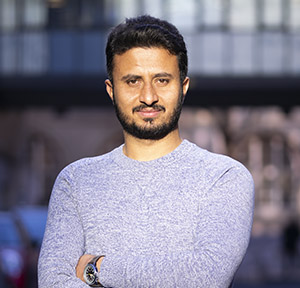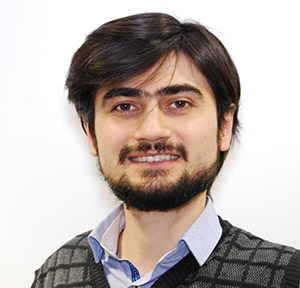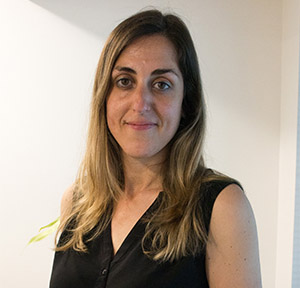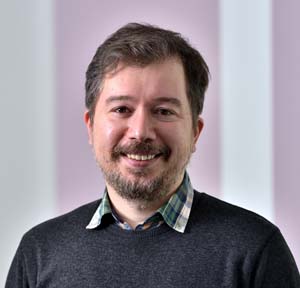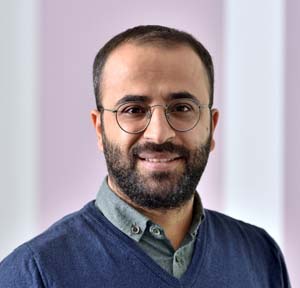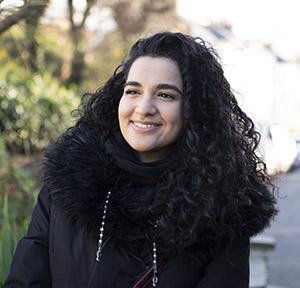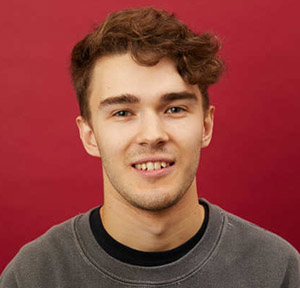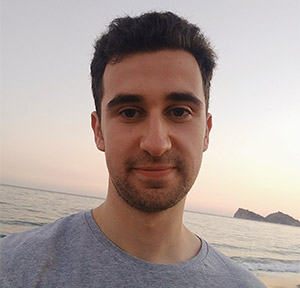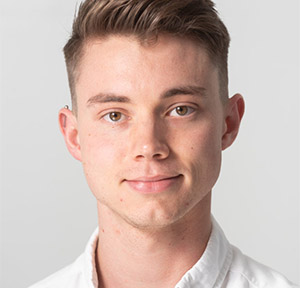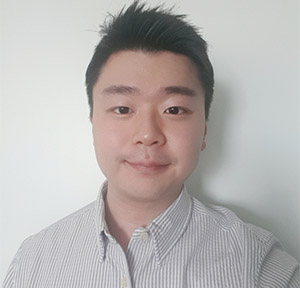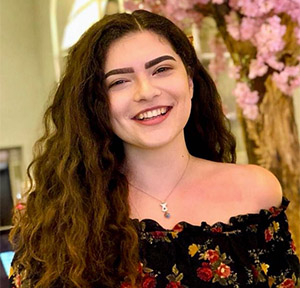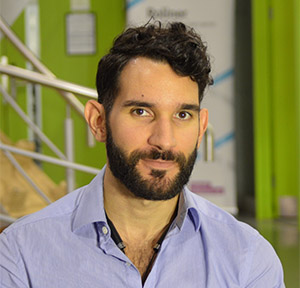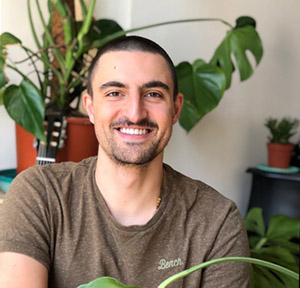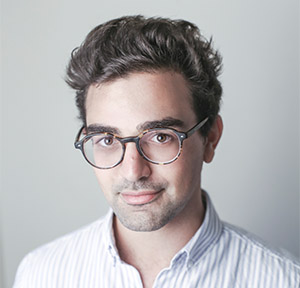Group Members
Research Staff
Dr Muhammad Adeel
Adeel obtained his PhD in Science and Technology of Bio and Nanomaterials from Ca’ Foscari University of Venice, Italy. His PhD work involved the development of electrochemical biosensors for detecting small molecules under physiological conditions, such as glucose (and COVID 19 spike protein detection). Additionally, he focused on synthesizing smart nanomaterials for therapeutic applications, exploring drug delivery systems, carrier-free delivery systems, and self-therapeutic nanomaterial-based systems. Prior to pursuing his PhD, Adeel worked as a research assistant at Dongguk University in South Korea, where he explored developing nanomaterials for various electrochemical applications, including biosensors, supercapacitors, and solar cells. As a member of the Güder Research Group, Adeel is involved in the UKRI Cure4Aqua project, which aims to develop NFC-powered electrochemical systems integrated with qPCR chips to study fish-related diseases.
Dr Yasin Cotur
Dr. Yasin Cotur completed his PhD in Bioengineering at Imperial College London and specializes in creating wearable biosensors for health monitoring. His work encompasses the development of cutting-edge biosensors for real-time physiological tracking and the design of sophisticated soft wearable systems with wide-ranging health applications. As a co-founder and leading figure at AniML, Dr. Cotur is instrumental in driving forward the development of AI-enhanced wearable technologies aimed at improving animal health. His extensive publication record spans sensor technology, physiological monitoring, and the integration of machine learning in biomedicine, showcasing his commitment to enhancing both the functionality and accessibility of bioengineering solutions in day-to-day healthcare.
Dr José Flauzino
José obtained a BSc in Biotechnology, Master and PhD in Biochemistry from the Federal University of Uberlândia, with sandwich periods at the Technical University of Dresden and the Catalan Institute of Nanoscience and Nanotechnology. He also worked as a Scientific Consultant for Biosens Healthcare and as a Research Associate at the Czech Advanced Technology and Research Institute. His research is focused on the development of nanomaterial-based electrochemical biosensors for detection of relevant biomarkers, viruses, food pathogens and food adulteration. As part of Güder Research Group, José is working on a project founded by the Bill & Melinda Gates Foundation to develop NFC-powered electrochemical lateral flow assays for detection of plant viruses to ensure food safety.
Dr Laura González-Macia
Laura obtained a BSc in Chemistry and a Master in Electrochemistry from the University of Seville and a PhD in Chemical Sciences from Dublin City University. During her doctoral studies she worked on the development of printed electrochemical sensors and biosensors using novel electroactive materials. She then spent several years as a Research Associate/Fellow at the University of the West of England and the Ecole Nationale Superieure de Chimie de Paris, where she worked on the integration of printed biosensors on diagnostics platforms and the development of solid-phase micro-extraction devices. She then joined Osasen Sensores SL (now Biolan Health) as Scientific Director and Marie Skłodowska-Curie Individual Fellow (MSCA IF), where she worked on the development of Point-of-Care devices for the healthcare market. As part of Guder Research Group, Laura is working on (electrochemical) paper-based sensors for the monitoring of food spoilage and plant viruses. She has been recently awarded her second MSCA IF to work on Lateral Flow Assays coupled with gas sensors for the determination of pathogens in food.
Dr Hasan Kurt
Hasan obtained his Ph.D. in Materials Science and Engineering from Sabanci University in 2016. Later, he joined the Department of Biomedical Engineering at Istanbul Medipol University as a faculty member. His research focus was on light-matter interactions and the exploitation of surface plasmons in various applications, such as light management in optoelectronic devices, plasmonics biosensing, and organic photovoltaics. Since 2014, he also serves as the managing partner of a tech start-up, Nanosolar Plasmonics Ltd., focusing on commercial nanoplasmonic biosensor platforms. Hasan works on soft sensors and bio/chemosensors for soft robots in the Guder Research Group.
Dr Abdulkadir Sanli
Kadir received his B.Sc. degree in Electrical-Electronics Engineering from the Dumlupinar University, Kutahya, Turkey in 2009, and M. Eng. degree in Analytical Instruments, Measurements and Sensor Technology from the Coburg University of Applied Science, Coburg, Germany in cooperation with University of Shanghai for Science and Technology, Shanghai, China, in 2012. Dr.-Ing. Sanli obtained his Ph.D. degree in 2018 from the Chair for Measurement and Sensor Technology at Technische Universität Chemnitz, Chemnitz, Germany. His research interests lie in the area of design and characterization of carbon nanotubes-polymer based nanocomposites, electromechanical characterization and modeling of nanocomposite-based sensors, force sensitive electrospun nanofibers, smart tags with RFID/NFC technology for health diagnostics and wearables, and nanocomposites for electromagnetic interference shielding applications. Abdulkadir is working on the development of a high-performance disposable on-site diagnostic tool including a wireless and batteryless, near-field communication (NFC)-based electrochemical lateral flow assay for the detection of plant viruses to control the spread of crop pathogens and to improve food security.
PhD Candidates
Alanood Alharthi
Alanood holds a Bachelor’s degree in Biomedical Sciences from the University of Westminster, where she gained expertise in areas like Medical Microbiology, Diagnostic Biochemistry, Haematology, and Immunohaematology. She actively participated in genome editing projects and led a team in engineering E.coli bacteria to break down plastic waste and produce electricity during iGEM 2019. Her thesis project involved using the CRISPR Cas9 tool to modify Osteosarcoma cells to study the significance of the WRN gene. During her undergraduate years, Alanood also contributed to nutraceutical studies, investigating the connection between curcumin and iron levels with the Muhammad Gulrez Research Group. Following her Bachelor’s, she pursued a Master’s in Biomedical Engineering at Imperial College London, where she worked on fabricating a Liquid Metal-Based reconfigurable actuator with the Guder Research Group. Currently, she is undertaking a Ph.D. with the same group, focusing on developing a wireless DNA Injectable Sensor for diagnostic purposes. Alanood’s academic journey demonstrates her dedication to advancing biomedical engineering and contributing to pioneering research in healthcare and diagnostics.
Phil Coatsworth
Phil studied MSci Chemistry with Industrial Experience at the University of Bristol, where he carried out his Masters project in the Bedford Group researching the borylation of arenes and heterocycles by iron and cobalt catalysis. He also worked at Syngenta in Jealott’s Hill, Bracknell as part of the Formulation Technology Group for his industrial placement, where his work focused on the characterisation of a new class of non-ionic surfactants. He is currently part of the Plastic Electronics CDT and working in the Guder Research Group on the Plant-On-A-Chip project, researching printable and disposable paper-based sensors for the measurement of a plant’s immune response to disease.Alex Collins
Alex gained a 1st class MEng in Biomedical Engineering at Imperial College London where he undertook his master’s project in the Güder research group, developing a wearable sensor for detection of alcohol intoxication. Alex has received an MRes in Molecular Plant and Microbial Sciences since joining the BBSRC Doctoral Training Programme at Imperial and is currently working on the development of a real-time biochemical plant machine interface for his PhD.Jack Herrington
Jack graduated with a 1st Class MSci degree in Chemistry at Imperial College London, where his Master’s project saw him develop a robotic system for the automated fabrication of organic photovoltaic devices. Upon graduation, he continued his interest in automated chemistry at Imperial College by joining the Centre for Plastic Electronics, undertaking a MRes on the highly-controlled synthesis of semiconducting polymers using a self-optimising flow reactor. During this time, he also provided assistance in the 4th year chemistry undergraduate “Robot Chemistry” course. For his PhD in the Güder Research Group, he is working on the integration of paper-based gas sensors into immunoassay technology.
Hong Seok (Andrew) Lee
Hong Seok studied MEng Biomedical Engineering at Imperial College where he worked on the fabrication of an organic conductive thread for e-Textile applications for his master’s project in the Guder Research Group. He continued working on his project after his graduation and additionally worked as a Research Assistant at BlakBear where he mainly worked on paper-based sensor development and characterization. Hong Seok is currently part of the London Interdisciplinary Social Science DTP, working to solve the food waste crisis through engineering and by taking a socioeconomical approach. His PhD project is on the development of a NFC-based freshness sensor and to assess its impact on consumer behavior to reduce food waste.
Selin Olenik
Selin earned a 1st class MEng degree in Biomedical Engineering with a Year in Industry from Imperial College London in 2020, working with the Güder Research Group for her final year project to design and develop a wearable indoor navigation system for military search dogs. Selin spent a year with Philips Respironics in Chichester, U.K. where she primarily worked on developing automated validation software and equipment for nebulizer devices. During the summer of 2017, she also worked with ETH Zürich as part of the Amgen Scholars Program where she developed a neural network to identify semantic features in human mobility patterns. For her PhD, Selin will work with the Güder Research Group to design an injectable NFC-based implantable sensor for patient monitoring.
Ugur Tanriverdi
Ugur studied his first degree in BSc Biomedical Engineering at Yeditepe University, Istanbul, Turkey. After graduation, he moved to London where he received a Distinction Award in MSc Advanced Engineering Design and worked on various engineering projects including a robotic hand. He completed his second master’s degree MRes Medical Device Design and Entrepreneurship with Distinction Award, and he is currently doing his Ph.D. in Bioengineering at Imperial College London. In the Güder Research Group, his project is focused on developing a robotic leg socket to offer enhanced fitting and comfort for amputees. Ugur’s interests include medical devices, robotics, and interdisciplinary engineering applications. Besides his academic career, Ugur is also running his engineering design and consultancy company in London.
Research Assistants
Guglielmo Senesi
After graduating in Industrial Engineering BSc with biomedical stream, Guglielmo graduated with distinction in Biomedical Engineering MSc with Bionics and Robotics stream at the Campus Bio-Medico University of Rome. While finishing the MSc, he worked on a postgraduate research project at the Centre for Neurotechnology at Imperial College London aimed at the development of man/machine interfaces for the control of upper limb prosthesis. He is currently part of the Guder Research Group at Imperial College London as a researcher. In 2018 he joined the med-tech start-up unhindr as the CTO, co-founded by Dr. Firat Guder and Ugur Tanriverdi, currently developing the first adaptive robotic liner, wearable device improving comfort in lower limb prosthetics.
Alumni
- Dr Giandrin Barandun (PhD / Postdoc)
- Dr Max Grell (PhD)
- Dr Michael Kasimatis (PhD)
- Dr Estefania Nunez-Bajo (Postdoc)
- Dr Sina Naficy (Postdoc)
- Dr Matti Kaisti (Postdoc)
- Dr Can Dincer (Postdoc)

